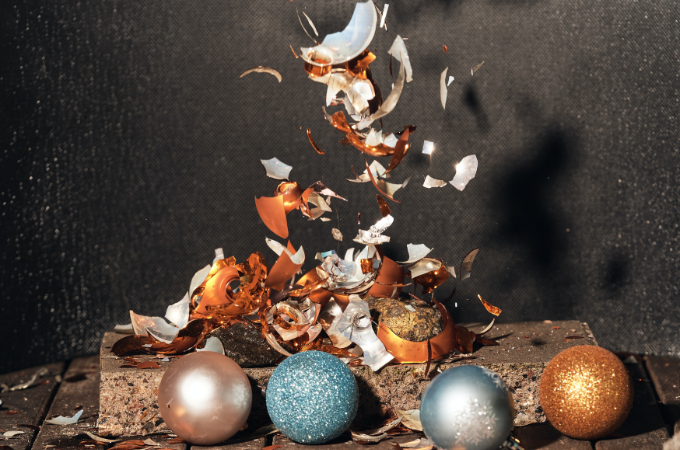
Mother needed rest. She shouldn’t take too many steps, turn any stews nor click the keyboard on her desk at the private school. She had to lay face up, all day because the gentle bulge in front of her which wasn’t as gentle as its sight. Father told us so, uncertainty seeping out of three sets of naïve feminine eyes.
Of course, it was all a perfect family. One of us with bulgy eyes that stared at people for ten years, venting very few words from her pursed lips and a hairline reaching her brows as if sewn together. The other whose words spew out like the sprouting of bean seed, her body, all amber colored, tanned from eight years of sun rays steadily burning, on our way to and back from the primary school. The last after five years of examining didn’t seem to come from the tree. She didn’t have father’s bulbous nose nor his beady eyes, neither mother’s straight nose nor pursed lips. The canvass covering her bones didn’t look like it came from the family, grandma called her a baturia when she had come for the holidays.
We all played under the flowing leaves of the mango, our feet dancing in the dust that wasn’t as hot as the one outside the shade and playing “ten ten” our hands jamming in the air with childhood gaiety. “What if we had a brother?” one among us asked as we sprawled on the ground roasting some dried groundnut in a coal fire whose coals were covered in grey until we blew with our whistle-shaped lips to see the flame red, our forehead owning beads of sweat. “It would be nice,” another answered smiling with oblivious eyes that weren’t present with us.
After saying our night prayers in the parlor-like room graced with armchairs, its cotton fading away, we planted on it although our feet couldn’t touch the ground and one of us outrightly announced, “daddy we want a brother” as she wriggled her little toes, her gleeful eyes straining in an aimless direction. Father looked at us, then at mother whose bulgy eyes became bulgier, his jaw dropped, wandering why we had thought of such and perhaps also happy with the idea, pressing his lips and heaving a sigh. “You should all go to bed” he said in his deep-toned voice. Our father could speak good English, we thought, and would raise our shoulders high about it at school, saying he even had a bicycle which he would take us three on a ride with mother behind. We had chuckled as we ran off to our room biting our fingers.
Now as we stared at mother lying on the mattress, her hair with specks of the peeling foam, she didn’t look like what we had imagined. Mommies we had seen didn’t hold that big ball in front of them and lay upwards all day, some, we saw at the market buying tomatoes or onions or even measures of maize, but mother’s was different. Besides, she carried that ball slower than we expected for it to pop out of her stretched belly skin. We saw father in the kitchen, turning the stews and grounding the peppers which would sometimes get into his eyes issuing a shout prompting mother’s ethereal voice. His response was always a lie, we wondered why, when he had told us not to. Once he was slicing some onions and we saw him crying, he said dust had gone into his eyes but the windows were closed. We had stared at him for a while before he ushered us outside to play. He brought out a mortar and pestle to ground some groundnut, each rise and fall of the pestle sent the mixture spilling over to the ground and on the edge of the mortar until it fractured into half of what it was. The red oil floated by the side, the leaf by the other while the groundnut paste rested on the floor of the plate and we looked at it sourly, twisting our mouths as we minted swallowing the chunks of tuwo, smiling and nodding to his question of whether the food was nice.
This is not what we wanted. We craved mother’s sizzling stews, her aromatic soups and the warm bath she gave us. Father’s was always hot, hotter than usual and we would shriek as he raised the bowl and bent it over our heads. His scrub was hard, not like mother’s softness, and he would brush over the several scratches of dried blood which we sustained while playing unlike mother’s mindfulness of those wounds. The hurt would begin, like disturbed dust, the oil he applied on our tanned skins was always disproportionate, rubbed overly on the face, and no trace on our legs. We would walk outside, our faces shining in the brightness of the afternoon with white legs and would initiate another round of play which would escort in the dirt again. Father would flare at us and send us to bed without a second bath. Our legs were always bitten by mosquitoes. Mother couldn’t wake up to cover our white legs which had rolled off the blanket and father was far away, in the land of snores. We were always late to school and would arrive looking like we hadn’t a good sleep nor a warm bath.
When our mates talked about their Christmas dresses, we wondered why when Christmas was still far. By this time on other Christmases, we would have worn our colorful blouses or gowns countless times, imitating our walk steps for the big day. There should have been some measures of flour packed up in the store before it would be molded into a dough in mother’s big bowl afterwards, diced into cubes. The oil on the three-stoned fireplace would pop little eye bubbles and when we had the chance, we’d steal into the mud-built kitchen just outside the house, picking up four or five cubes spread out on the wooden tray, cleaning our dirty hands on our soiled shirts and throwing the cubes into our mouth. Those nights would be filled with complaints of stomachache and both father and mother would discover our smart moves. As we walked home, our oiled hairlines shone, father had remembered to apply some, causing a roast-like pain but we didn’t care in the silence we walked. We were lost in thought, the thought of Christmas.
Father wasn’t home from the mill. Mother sat on a stool in the kitchen stirring some stew. We stared at her huge back which had wrapped us all, grinned from ear to ear before our joyful leaps in the air. Mother was startled, she had not seen us coming in but was consoled by our hugs which weren’t entirely complete because of the big ball. She smelt of rose perfume mingled with smoke and we ravished her warmness. We finally ate something which made us smile, munching on, not been able to answer whether the food was nice or not. When would we have our Christmas dresses? We asked mother after eating. Father would get it, she smiled before answering. Father didn’t smile. We heard him scolding mother for sitting on the stool to cook. Before our night prayers, we had seen father flushing into the pit toilet, a bucket one-fourth filled with blood. It wasn’t his. Mother was bleeding again. Most nights, she did so, we only had to wake up to see the bucket by her bedside.
Father bought our dresses. It flowed to the ground, the waistline starting from our knees. Mother said a little touch by a tailor would do and besides we would grow old to have the dresses fit us perfectly. Father smiled, probably happy about his achievements while we stared at the mirror our faces pale. We didn’t wear the dresses again nor the black loafers resembling a moccasin when we wanted silvery or white high heels. Ani got a white balloon gown, adorned with little cyan colored flower shaped designs, Aminata got the slivery high heels we wanted, but hers was more beautiful than the one we imagined. Their tiny rooms were either painted pink, purple or blue, neatly arranged bags and the bed sheets were neat. Ours had clothes spilling over from the ransack it underwent after our baths, the yellow-painted walls were stained with the dried mucus we rubbed on it and blueprints of our grime-filled fingers. our bed linen had holes made by the rough edges of our soles and expanded by our little hands. Father was too busy to see the oil stains, change it or give it a wash, perhaps, he wasn’t used to it.
“We don’t know where our mother hid them,” we had replied when they asked about ours and declining even when they offered to help find them. At home, there was no flour in the kitchen even though it was two days to Christmas when mother would have been mixing and kneading in her big bowl as it moves side to side with every mold. When we had collected our results at the end of the term, there was no chicken meat or delicious rice or chocolates as other times even though our results were good, father said the money would be used to buy mother’s drugs. We had looked plainly at him, our true intentions hidden behind our eyes. We cried that night, so much so, for everything. It’s Christmas but we didn’t feel like wearing our clothes. Amimata would laugh at our shoes, Ani at our ballooned dresses. Mother had promised us in June, a trip to the city’s park when it was Christmas, having lost the fun of everything, we looked out for that one promise and were willing to put on our old dresses to the park.
“We can’t go there,” father said packing the plain rice into the big flask, without mother’s Christmas garnishing of green peas, carrots and salad. Father hit us hard, so hard like a weal slashed across our delicate faces with those words. Those tears which one cried but wasn’t seen was what we did. We slept all day alive to the voices of children who passed by probably to go collect treats or Christmas money from uncles and aunties or even good Samaritans before we closed our eyes. Last year, we were part of this movement. We were the leaders directing the others where to go to get good treats.
We woke up late in the evening, mother breathing heavily, her eyes were almost white completely making us wonder where the black dot had disappeared to. The room smelt of blood. Father shooed us away to bed again. He wasn’t there when we woke up on Boxing Day morning and neither was mother. Some of mother’s clothes weren’t in their room, the bag which contained some of our baby clothes which mother kept neatly for years wasn’t there also. The door was locked from the outside, we clinging to ourselves, knees bent upwards on the bed. Ani’s mother walked in. She smiled at our startled faces, we been relieved of our imagined nightmares.
“Your father drop key for me yesterday night. He carry your mummy to hospital,” she said sitting on the cushion before we remembered to greet good morning. The food she brought was nice, not as good as mother’s but better than that of father. Father’s phone call sent her dancing and round the sitting room. “Your mummy born baby boy!” she announced. We grinned. We didn’t leap for joy or make those happy squeaks. Father came home after Ani’s mother left. We would go to the hospital tomorrow to see mother and the baby, he had said smiling. Mother used to take us out every Boxing Day to see our uncles and aunts half of which we didn’t know, we were going to the hospital this time. Our last visit there to see grandma was laced with the peculiar antiseptic smell following our emetic reaction or stomach upset.
At the hospital, some miles away from our house, the antiseptic smell was not new, we walked to the patient ward. Mother’s bed was far at the wall’s end. She looked pale and barely smiled when she saw us, her hair was just the way she left it for months. Father carried the baby wrapped in shawl whose creamy color had seeped away in countless wash. His head was just a little bit bigger than Father’s fist, and his lips, eyes, nose were like dots on his plain face with slicked black hair. We stared at him before smiling, our little wish. Mother didn’t want us to stay at the hospital, she asked father to take us home. Ani’s mother came instead, she took us along when she left. The road was specked with people, colorful people, moving here and there. Ani had gone for a cousin”s birthday party, her mother told us. The city’s park was crowded as we watched through the keke we boarded, the breeze making our breaths almost impossible. Sitting silently in the sitting room when Ani’s mother left was like the silence of a calm sea. The lantern could barely illuminate the whole space, no electricity. Father opened the door, walking in with the bag he had carried, Ani’s mother with our little wish, we were popping our heads for mother, father closed the door. Where’s mother? We asked under our anxious eyes, and when we looked at Ani’s mother for the answer father didn’t give, she turned her face away. There we were, three figures in the shallow light, without answers to our question.
Father’s eyes were always red or swollen. He had series of nightmares which would send him running out of his room, sometimes out of the house, with a matchete or the pillow and would make us freak. Grandma came to stay, mother never returned from the hospital and even grandma refused us an answer to our question. We made answers for ourselves, maybe she was lying upward on the hospital bed, when we grew a little bigger, we would wear our Christmas dresses to visit her since father wouldn’t take us, she would smile at how we have grown and how right she was about the dresses. Could we live that long without her. Now as we look at our wish, his straight nose, mother’s bulgy eyes, fine hair, we wondered whether we did the right thing.
Photo by Ingo Doerrie on Unsplash


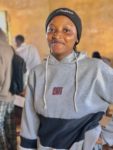
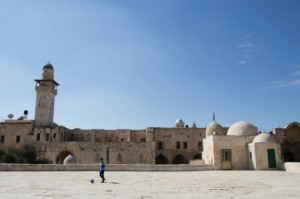
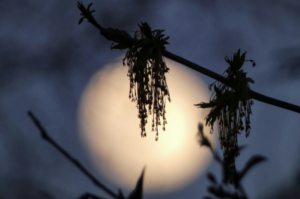
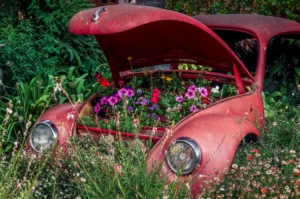
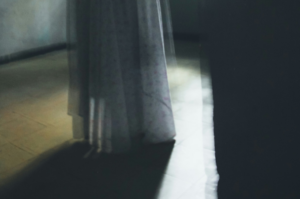
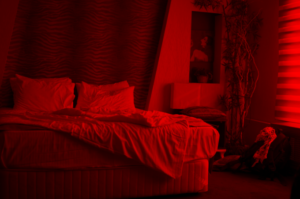
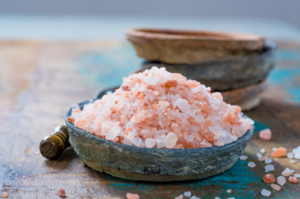

COMMENTS -
Reader Interactions